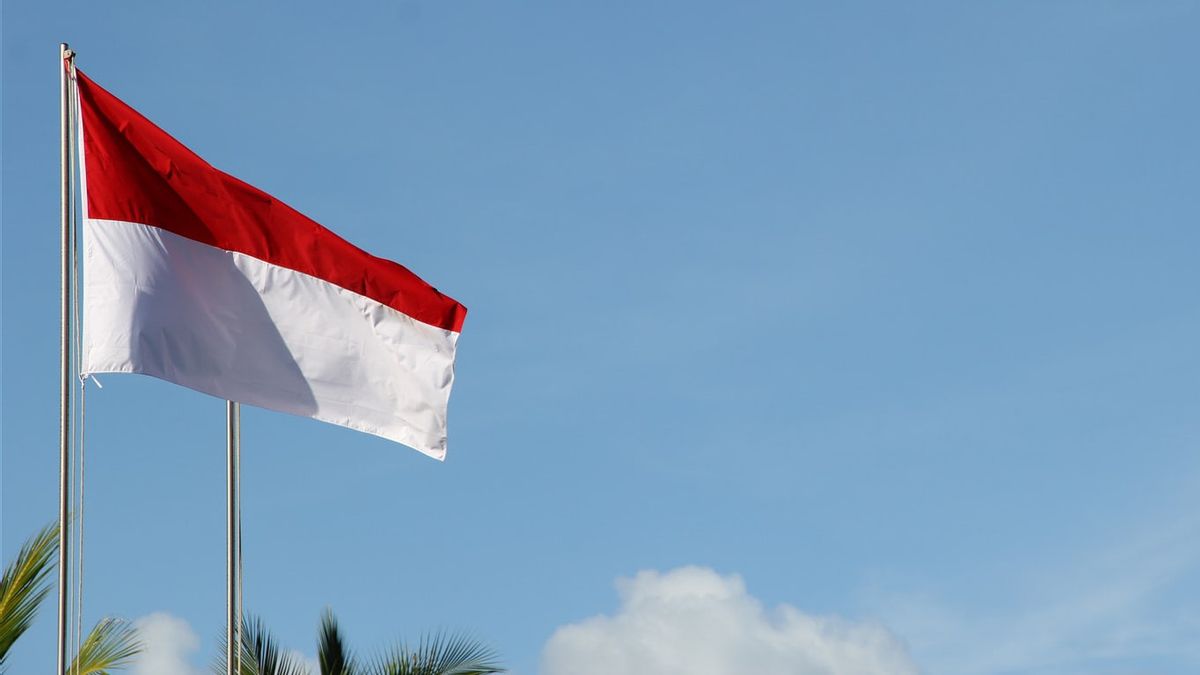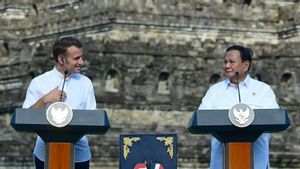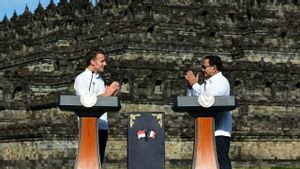JAKARTA - A number of countries that were originally on the list of developing countries, one of which is Indonesia, which has now advanced to become a developed country. This is because the United States through the US Trade Representative (USTR) has revised their list of developing country categories for international trade affairs. However, it is feared that this change in status will have a negative impact on Indonesia's trade performance.
Upgrading from a developing country to a developed country poses a risk to Indonesia. One of them, Indonesia will lose the Generalized System of Preferences (GSP) so that it has the potential to experience a trade balance deficit.
GSP is a trade policy of a country that provides a cut in import duties. This is a unilateral trade policy from the United States to help developing country economies, but it is not binding for both giving and receiving countries.
Executive Director of the Institute for Development of Economics and Finance (INDEF) Tauhid Ahmad said that if you look at the proportion of Indonesia's non-oil and gas exports to America, it is quite large and some imports from America are also large. Data until 2018, exports to America totaled 10.85 percent of the value or around 17 billion US dollars.
"That's very big, yes. Of course, with this large proportion, it will become a threat when America proposes to the WTO that we enter developed countries. If we look at the agreement, for example the Bali meeting in 2013, the countries that entered the country. developing countries get GSP facilities or say they get import duties that are not large compared to developed countries, "he said when contacted by VOI, in Jakarta, Tuesday, February 25.
Tauhid explained, with the relinquishment of Indonesia's status as a developing country, of course there is the possibility of experiencing an increase in tariffs that were originally lower and will go up to normal rates. This of course will hit various commodities that are included in the GSP and there are quite a lot of them.
"If we are still around 800 commodities that use the GSP facility. So if this later we will automatically revoke the various conveniences that 800 of these products will decrease. So, the proportion I can not mention the number. But I think this is quite large and this has an impact on performance. our traders are also quite large, "he said.
According to Tauhid, in the last five years, Indonesia's condition in America has been in surplus and because of that America has implemented a proposal to raise Indonesia's class to become a developed country. The goal is to reduce the deficit against Indonesia.
"Automatically for us, the situation will cause it in general. Later our exports will weaken against America and in general our trade balance deficit will also weaken. This is what I think we lose by implementing it. If we accept, I think this is too much. refused, several countries have refused, "he explained.
Tauhid explained that a country cannot be said to be a developed country, just seeing the indicators of Indonesia being a G20 country. In fact, he said, if you look at other indicators such as GDP per capita, Indonesia has only received around 4,000 thousand US dollars per capita per year. Meanwhile, developed countries have almost tripled above it, namely 12,000 and even 15,000 thousand US dollars per capita per year.
"In my opinion, it is unfair because we have a surplus, America immediately made this strategy. Indeed, the goal is to hit China's export market, but we also want it or not to be affected. Because we also have a surplus to America," he said.
According to Tauhid, the Indonesian government struggled to reject this promotion. Because, the risk is if the government accepts Indonesian exporters who are affected and it will harm the domestic industry. Especially the textile, rubber and so on, which are distorted by this American decision.
"It will definitely have an impact, because of that I think the first government should officially file a lawsuit against the WTO. We have to increase our competitiveness rather than our own products. So if later we charge the tariff to normal and automatically the cost of entering America is higher than before, we must have. competitiveness. So, even if it increases later, we will still provide exports that do not decline, "he said.
The problem, said Tauhid, is that one of the competitiveness in addition to products is price. He considered, related to the price, Indonesia must compete by reducing unnecessary costs. For example, the problem is that the logistics costs are enormous, reaching 27 percent of GDP. If Indonesia succeeds in dealing with logistics costs alone, it will significantly lower export costs.
"It's not bad that we can compete in terms of price by reducing logistics costs, besides of course it will increase the competitiveness of the product itself at a relatively high price," he said.
In addition, said Tauhid, the government must provide other incentives for industries that will be affected by this class upgrade. This is because several industrial exporters will be hit hard. So, it is important that incentives are important, for example tax delays or other tax facilities that can indeed help the industry to survive in the midst of an unfavorable situation in the future.
"We must not depend on the market from America. We need to look for alternatives to countries that have the same consumer characteristics as America. For example, Korea, Japan or other developed countries which may indeed be suitable and in accordance with the market of our products," he said. .
Countries Must Negotiate
Chairperson of the Indonesian Chamber of Commerce and Industry (Kadin) Rosan Roeslani questioned the United States' move to remove Indonesia from developing countries. Rosan said, what category is used in determining a country to be said to be developing or developed.
Rosan said, identification of developing countries or not should also be seen from the poverty rate, the unemployment rate. The Indonesian government was asked to renegotiate this action by the United States.
"Is that indicator ruled out? It must again be negotiated between our government and the United States," he said.
This negotiation, said Rosan, also applies to the import duty reduction facility or GSP being maintained. According to Rosan, the government could also apply a reciprocal system to the United States in order to get lower import duties, such as asking the United States to buy more garments and in return, Indonesia imported more cotton.
"Maybe because trade in the United States is not only fair trade, but reciprocity between the two parties," he explained.
The English, Chinese, Japanese, Arabic, and French versions are automatically generated by the AI. So there may still be inaccuracies in translating, please always see Indonesian as our main language. (system supported by DigitalSiber.id)













